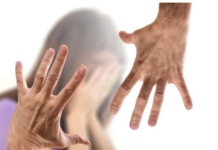EDITOR’S CORNER
Earlier this month, in one of my Editor’s Corners, I looked at recent stories and studies addressing the mental-health impact of trauma on kids and adults. Since then, a fresh crop of articles have focused on the effects of racism and deprivation both personal and systemic, leading to trauma that yields ongoing emotional and mental distress.
One study, published in JAMA Psychiatry, examined the mental health toll of online racism on Black children and teenagers. Many youths targeted in online racist attacks exhibited symptoms of post-traumatic stress disorder—which, in turn, were potentially linked to suicidal thoughts.
Another report, released by the UK’s Centre for Mental Health (CMH), showed the negative impacts of racism, financial struggles, and inadequate housing on mental and behavioral issues during childhood and calls for the government to commit to ending poverty. “Parents told us about the struggle to support their children’s wellbeing while also working long hours to make ends meet, or living in overcrowded and insecure housing,” the report states. “And they described how racism wore away at children’s wellbeing, making them more likely to face mental health difficulties including behavioural problems.”

As always, none of this is remotely surprising—not from a fully human standpoint. But the fully human standpoint is too often ignored in the pharma-driven, disease-based biomedical model of mental health, which pins the blame on the isolated individual and some vague neurochemical malfunction going on inside the brain. The outside world, and all that happens there, means almost nothing.
The CMH report quotes parents on the topic, including one whose seven-person family is crammed into two bedrooms with mold. And as someone else observes:
“Children and young people do not exist in a vacuum: their behaviour is largely determined by the circumstances at home, in their communities and families. If children live in poverty, in poor housing conditions, witnessing or being subjected to domestic and community violence and other traumas, then that very often does come out in their behaviour in schools and other settings.”
Sure enough, in a new paper published in World Psychiatry, James B. McBride and a team of co-authors shine a light on all the social determinants affecting mental health and argue for a seismic shift in how they’re addressed — i.e., by alleviating the root causes of distress. As the abstract explains:
Social determinants of mental health encompass the set of structural conditions to which people are exposed across the life course, from conception to death, which affect individual mental health outcomes, and contribute to mental health disparities within and between populations. These structural conditions include factors such as income, employment, socioeconomic status, education, food security, housing, social support, discrimination, childhood adversity, as well as the neighbourhood social and physical conditions in which people live, and the ability to access acceptable and affordable health care.
Deeming them “the most modifiable set of targets” for intervention and prevention of mental health issues, the authors offer seven recommendations as “a roadmap for improving population mental health and reducing inequities in mental health and disorder.” Among them: “Make social justice central to all public mental health interventions. And another one, echoing the Center for Mental Health report: “Prioritize interventions that focus on poverty alleviation.”
The review points to loads of studies supporting such recommendations, including research showing the risks of psychosis for children of struggling migrants—and similar, profound risks for those experiencing racism:
Racial discrimination has been prospectively associated with poorer mental health and distress163, common mental disorders164, 165, psychotic disorders166, and risk for conversion to psychosis among those at high risk167. Racial discrimination is also identified as a reason why, even among non-poor upwardly mobile Black Americans, the risk of negative health outcomes is higher than for their poor White American counterparts168
Again, not remotely surprising. We feel what we feel, and are what we are, because of all the forces in life that shape us beyond our control—particularly during childhood. Instead of trying and failing to fix people’s brains, we should address inequity and discrimination in all its forms. That’s where healing begins.
—Amy Biancolli, Family Editor
***
More from Mad in the Family
More Editor’s Corners














